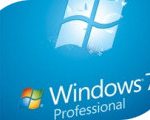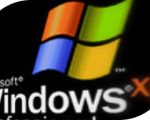Windows 7 is coming: You should upgrade

I'll begin by saying that Carmi Levy is my very good friend, and I do admit that most of the time, he and I think along the very same wavelength. I met him through our mutual friend Wolfgang Gruener at TG Daily, and we've carried on a very fruitful dialogue about the IT industry ever since. That, and he has this way of making Winnie-the-Pooh berets look really cool.
We do disagree on one point today, and I think the nature of that disagreement would be beneficial to folks who are wrestling with the question Carmi brought up this morning: "To upgrade or not to upgrade." His article is worth reading, so rather than summarize it here, I'll let Carmi speak for himself.
Windows 7 is coming: Don't upgrade

To upgrade or not to upgrade: It's the issue of the moment for Windows users everywhere as the hype machine for the October 22 Windows 7 release gathers steam. And as we gaze at our existing machines, either running a snappy but outdated XP or a pokey but still slick looking Vista, and wonder whether we should be planning a late night trip to the big box store for our very own copy, I've got one word for you: Stop.
There are plenty of reasons why you'd want to refresh your existing machine with a cool new operating system. Pre-release versions of Windows 7 have displayed impressive performance, stability, and usability. Device compatibility -- a major bugaboo early on for the ill-starred Vista -- is much improved. It's smaller and lighter than the OS it ostensibly replaces, a nice reversal from the years-long tidal wave of ever-more-bloated products from the world's largest software vendor. Win7 scales better and can take advantage of more memory and multicore processors. That the new OS looks cool enough to not embarrass Windows fans when they run into Mac zealots at parties is an added bonus.
What is the Microsoft Lifestyle?

Since January, when I switched to Windows 7 (Beta and later Release Candidate), I have sought an answer to that question. To my surprise, I have yet to find a Microsoft lifestyle -- not one that fits me. So I ask Betanews readers: What is the Microsoft lifestyle? What is your Microsoft lifestyle? Please answer in comments.
Perhaps Microsoft's lifestyle is enterprise computing, something I don't participate in. I've never worked for a company that required SharePoint and often, because of older deployed software, neither has there been mandate to use Exchange Server. When I was an analyst, writing in Word was a must, but not before or since.
A browser war veteran turns wannabe

Marc Andreessen is a brilliant guy. His Mosaic browser, which eventually morphed into Netscape, introduced us all to the concept of surfing and ushered in the Internet as we know it. His new way of looking at online services -- which seems ho-hum today but was radically transformational 15 years ago -- freed us forever from the tyranny of arcane, unfortunately named services like Archie, Veronica, Jughead, and Gopher. In taking Netscape public, he set the stage for dot.com-era IPOs that created countless tech billionaires-as-rock-stars and defined an era when technology's potential was seemingly limitless. Let's call him brilliant and visionary, then.
However, even geniuses have their bad days...sometimes, they have many. Netscape was eventually wiped off the relevance map when Microsoft finally woke up to the Internet reality and paved over the landscape with Internet Explorer. The Internet bubble burst as the perverse logic that drove much of it -- eyeballs, "stickiness," and the ridiculous notion that bricks-and-mortar were headed for permanent and complete obsolescence -- was finally and thankfully replaced by the old rules of business that dictated you needed to generate revenue, and that revenue needed to exceed your costs.
Office vs. Web apps: Breaking the 0-0 tie

The story so far: We're in the initial phase of the Microsoft Office 2010 Technical Preview, a period of private and public testing that could last for the better part of a year. So far, the biggest complaint we're seeing emerge is that so little is changing, that it's becoming more difficult for Microsoft to make the value proposition for why businesses and individuals should upgrade from Office 2007 or even 2003. In the absence of viable, existing reasons why the new Office will be better than the old one, a couple of Microsoft employees launched a Web site this week, asking people to come up with their own reasons and vote up each other's best responses.
Right now, the number one suggestion users have for "making Office better" is the restoration of an old feature that existed in Office XP. The #3 suggestion for Word: Give users the option to bring back the Office 2003 menu bar. (You can just hear Carmi Levy cheering that suggestion.) So to recap, from both Microsoft and its users, nothing new yet, but plenty of pleas to bring back old stuff that was just fine.
Three cheers for Goliath: Microsoft Word and the battle for ideas

It's always a kick to watch little David saunter onto the battlefield, load his slingshot and knock off the dominant, arrogant Goliath. We all enjoy rooting for the little guy, and whenever he prevails over the odds-on favorite, we can't help but feel that all is right with the world.
Sometimes, though, Goliath needs to pound his tiny adversary into the ground.
Twittered off: Time to grow up

Last week's monumentally scaled denial-of-service attacks -- more recently attributed to a massive attack on a Georgian professor and part of the ongoing dispute between Russia and Georgia -- once again showed just how soft Twitter's soft underbelly is. And for a service used by 44 million people last month, getting hauled to its knees by a bunch of political/cultural enemies intent on opening up a new front in a simmering regional conflict isn't exactly a sign that all's well on the security front.
If Twitter were a bank, the angry mobs would have already descended on Capitol Hill, pitchforks in hand, calling for someone's head. But since Twitter's just an itty-bitty message service, and since it's free, it gets a pass. It shouldn't.
Windows XP forever? The OS that just won't die

Microsoft has a problem on its hands. Or more precisely one problem with three seemingly contradictory components:
Windows XP is too good for its own good. It needs to die for the company's sake. It won't die because nothing else -- not even Windows 7 -- currently approaches it.We're closing in on eight years since XP first hit the market and began the long process of making us finally forget we ever used Windows 95, 98, and Windows Me. By anyone's standards, it's been one of Microsoft's most visibly successful products. It still runs on some 60% of all PCs years after it was supposed to have been retired as a front-line offering. It's sold around 800 million copies since its initial release. And if piracy is the sincerest form of flattery, hundreds of millions more illegal copies are in use across the globe. In an age where icons are in desperately short supply, this is as iconic a product as it gets.
The Google Voice battle: What is Apple afraid of?

In the 1980s, we wanted our MTV. These days, we want our IP-based telephony, we want it at home and on the go, and we don't want to get ripped off in the process. Apple either hasn't gotten the message or has chosen to ignore market reality, and it's a mistake that in the long run could cost it dearly.
By now the facts are well known: Apple last week rejected the official Google Voice Application for the iPhone from its online App Store, and removed a whack of third-party applications that relied on or connected to the service. Apple's lame excuse? The app offered functionality already available on the device.
After Tenenbaum, who will take back the music industry from the RIAA?

Because the Joel Tenenbaum trial hasn't been maddening enough, Engadget yesterday had a little item on how the RIAA is claiming that customers ought to just suck it up and accept that DRMed tracks will go poof even if they've been paid for, since no other products or service providers are expected to "provide consumers with perpetual access to creative works." That's interesting coming from a group that claims that alone of all industries, copyright holders somehow deserve to get paid in perpetuity for their output. I guess forever looks a lot longer when it includes server-maintenance duties.
If anyone's got a more enlightened response than "oy" to the Tenenbaum trial's result, I'm all ears. I respect Professor Nesson's legal acumen, and having fair use taken off the table just hours before the trial was probably not a setback from which any legal team could have recovered, but looking over the past year's proceedings -- the defense's push to make its processes open and transparent, the sustained effort to get the trial shown live on the Web, all that -- I wonder if we'd all have have been better off if both Tenenbaum, and Jammie Thomas before him, had simply rolled over.
The Value Question: Is the Apple or Microsoft Family Pack the better deal?

Is three times the price three times the value? That's the question I'm asking about Microsoft's limited-time Windows 7 Family Pack -- three Home Premium upgrade licenses -- for $150. Mac OS X 10.6 "Snow Leopard" Family Pack, with five licenses, will sell for $49.
It's a rhetorical question really. Most people with Windows PCs won't have the option of running Snow Leopard. Intel Mac users, by comparison, can run Windows dual-boot, using Apple's Boot Camp, or by way of third-party virtualization software. That said, to qualify for the discounted Family Pack pricing, Mac users would still need Windows XP or Vista.
Yahoo deserved to die

It's not nice to speak ill of the dead, even if they're very much alive and only dead in the business sense of the word. But it's super easy these days to look at Yahoo's co-founder and ex-CEO Jerry Yang and laugh out loud at how he squandered tens of billions of dollars --and his company's very future as an Internet powerhouse-- because he thought he knew better.
The short strokes of this week's Microsoft-Yahoo Internet search partnership must make Mr. Yang sick to his stomach: What Microsoft was willing to spend upwards of $45 billion for barely 18 months ago it has now won for…nothing. Sure, Microsoft didn't swallow the company whole. It's just a partnership, after all. But that matters little in a search market where the two players were doomed to an eternity of irrelevance if they didn't get together at some point. Living together, marriage, whatever we call it, Microsoft figured out a cheap way to gain access to a much larger search audience, and Yahoo had no choice but to sign the papers and move in.
Craig Mundie: The future of the PC is 'a room'

Craig Mundie, Microsoft's chief research & strategy officer, is charged with anticipating the future and the computing technologies people will need in the future. Early this afternoon, during Microsoft's annual Financial Analyst Meeting, Mundie spoke about the importance of natural user interfaces. He described one user interface I would never have imagined -- or perhaps you won't.
The successor to the PC is "a room," Mundie told FAM attendees. Apparently, Microsoft's big-ass Surface computer is even too small for Microsoft's vision leader. He demoed the room, too. Mundie described his desktop as a Surface computer, but the real user interface was the wall.
Robbie Bach: Windows Mobile had a 'challenging year'

Robbie Bach, president of Microsoft's Entertainment & Devices division, today told Wall Street analysts that the company's mobile strategy would improve. He laid out Microsoft's go-forward mobile strategy during the annual Financial Analysts Meeting.
Bach acknowledged that Windows Mobile had "a challenging year," with market share declining even as unit numbers increased. The company is ramping up for Windows Mobile 6.5's official release in October. Whoa, Bach asserted that the browsing experience on Windows Mobile 6.5 would be better than iPhone.
Microsoft-Yahoo deal is Google's Christmas-in-July present

There's an irony about the Microsoft-Yahoo search deal. At one time, Yahoo provided search services to Microsoft. Now Microsoft is returning the favor. Well, if anyone could call the outsourcing of Bing search to Yahoo a favor. It's not. I predict that the deal will create two losers, with Google lapping up more search share -- at least in North America.
The Microsoft-Yahoo deal is a strange one. It's the difference between two people living together and getting married. Microsoft and Yahoo will share common residence, but within somewhat separate confines, work schedules, belongings and bank accounts. This isn't even a marriage of convenience. I wouldn't even call it cohabitation. Microsoft and Yahoo are roommates who share space but different, often conflicting, priorities.
Recent Headlines
Most Commented Stories
BetaNews, your source for breaking tech news, reviews, and in-depth reporting since 1998.
© 1998-2025 BetaNews, Inc. All Rights Reserved. About Us - Privacy Policy - Cookie Policy - Sitemap.